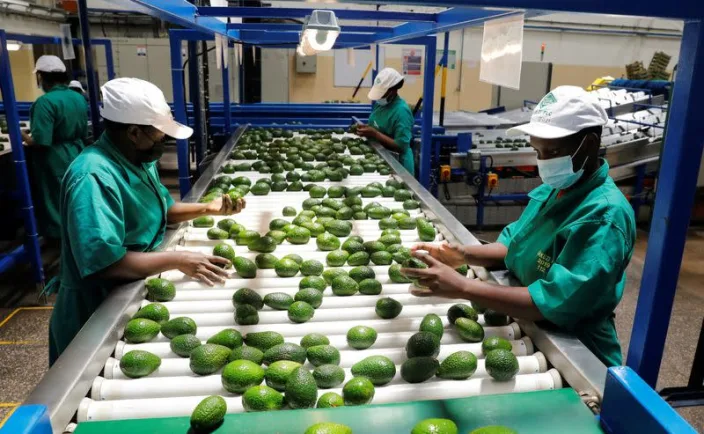
Improved agriculture business enabling environment needed for faster agro-industrialisation uptake
Dar es Salaam, 07/08/2022
Tanzania under the leadership of President Samia Suluhu Hassan has placed agriculture at the top of the agenda, thus it’s paramount for the ongoing efforts toward the implementation of the Tanzania Agro-industries Development Flagship (TAIDF) to be hastened, according to Dr Barney Laseko, a policy Implementation consultant.
TAIDF is a Government framework for mobilizing and coordinating investments toward agro-industrialization, which was developed by the secretariat of the Agriculture Sector Development Programme (ASDP II) with technical and financial support provided by the Alliance for a Green Revolution in Africa (AGRA).
Hastening implementation should be done through the urgent improvement of existing systemic governance hurdles in the Agricultural Business Enabling Environment (ABEE). For TAIDF to succeed, the government, private sector, and their development partners must come together to accelerate the creation of the requisite Agricultural Business Enabling Environment in Tanzania, notes the paper first published at kilimokwanza.org.
The implementation of TAIDF program should include immediate policy intervention, for example, the provision of highly subsidized sunflower hybrid seeds to all farmers in the country for three consecutive years, which would have a proven revolutionary impact. The recommendations are made in his article titled “Improving the Agriculture Business Enabling Environment: A Pre-requisite for Agro-Industrialisation in Tanzania.” In 2020, the Government developed TAIDF with the goal of enhancing and accelerating structural economic transformation through improved sustainable agro-industry-based economic growth that is inclusive of the poor, women and youth.
The paper calls for the use of the advantage presented by information and communication technology (ICT), and urges for the existing hurdles to be addressed through a ‘Big Results Now!’ approach. The key eighteen ABEE factors include governance of land, water, seed, fertilizer, mechanization, finance, transportation, markets, gender (with a special interest in youth), logistics, crop aggregation, storage, value addition, tax regime, farmer organizations, dialogue, ICT and the environment.
The paper notes that Tanzania, like other countries referred to as “third world” or “developing” countries, was part and parcel of the well-pronounced first industrial revolution that was indeed not built overnight. After World War II, Tanzania and many other countries that were once the sources of raw materials lagged behind in adapting technological innovation leading to unsustainable inefficiencies in the global industrial system. Other parts of the world, in particular Eastern Europe and Asia, embraced technological innovations through the implementation of appropriate policies which created a conducive business enabling environment for agro-industrialisation. Hence, other countries have shown that it can be done.
The paper cites the findings presented by National Sample Census of Agriculture (NSCA) 2019-2020 results which revealed that in Tanzania, 65.3% of households’ livelihood depends directly on agriculture for their wellbeing.
The paper notes that it is ironic to swallow the fact that 57.6% of the cultivated area in Tanzania is still using human farm power through the hand hoe. According to the the paper a quick interpretation of these facts leads to a conclusion that Tanzanians are solemnly an ‘agrarian society: one of the oldest forms of an economy still in existence. This is of stark difference from the GDP and other statistics which show that Tanzanians are no longer an “agrarian society”, but an industrial one.
According to NSCA 2019/20 data, the major agricultural constraints reported by agriculture-based households included climate change impact (17.8%), cost of inputs (15.6%), access to land (13.5%), low prices of agricultural produces (7.2%), pests and diseases (6.7%), availability of inputs (5.6%) and soil fertility (5.3%). All of these constraints directly identified by farming households require targeted policy interventions.
Land governance, in particular, presents a serious ABEE hurdle. About 50% of the presented household agricultural production constraints can be addressed in one way or another through land reform interventions. Tanzania has good land-related policies for implementation. However, these policies have been designed to work in a context where legitimate land use plans have been done, surveyed, mapped and titled. The multiplier effect of improved land administration would hugely stabilise and smoothen the functioning of almost all other socio-economic sectors especially agriculture and the environment for inclusive and sustainable development.
The paper notes that agricultural inputs governance is among the critical areas calling for immediate improvement. For example, despite huge investments made by farmers in preparing farms, especially smallholder farmers, without improved seeds the results will be minimal if any. NSAC 2019/20 showed that only 20.8% of total land cultivated used improved seeds. Given the proven revolutionary impact that seeds can play in the TAIDF program, an immediate policy intervention must be implemented. “This can start with a strategic crop like a sunflower by providing highly subsidised hybrid seeds to all farmers in the country for three consecutive years,” noted the paper.
Note to the editors—
The full paper can be accessed via the link https://kilimokwanza.org/improving-the-agriculture-business-enabling-environment-a-pre-requisite-for-agro-industrialisation-in-tanzania/
